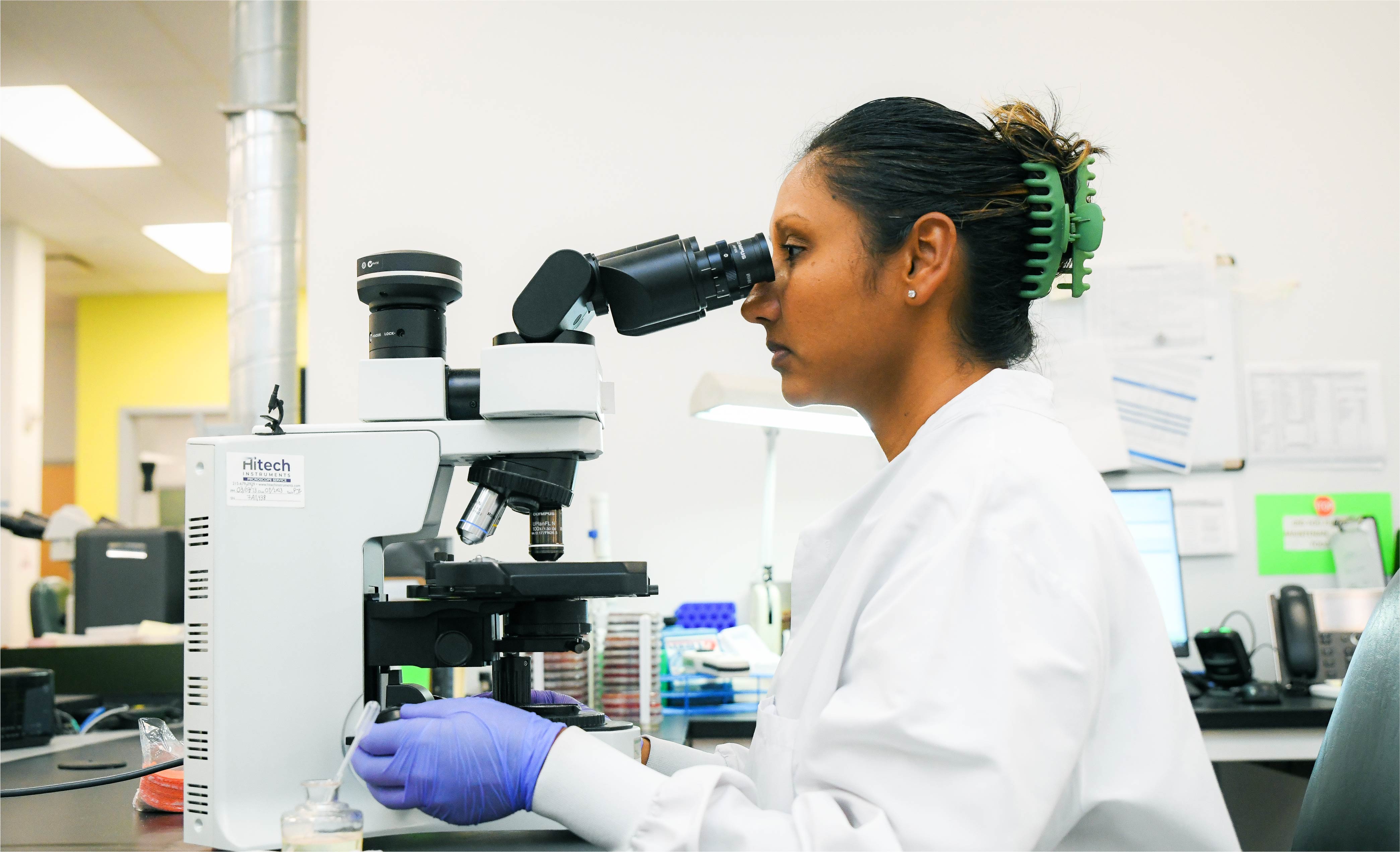How to Prepare for Your Lab Test
When your doctor orders a laboratory test, he or she is trying to find out more information about what’s going on inside your body.
Being prepared for your lab test will help collection, testing, and resulting run smoothly. If your lab testing requires special instructions, like fasting, they should have been provided to you on the paperwork your received from your physician.

Getting Your Blood Drawn: What to Expect
Look at your prescription from your provider. Any special instructions for your testing will be included on that paperwork. Some tests may require fasting, which means you’ll have to refrain from eating or drinking anything (except for water) before giving your sample.
Be sure to stay hydrated before a blood draw. This will help improve blood flow and make the blood draw easier.
Then, find the closest HNL Lab Medicine Patient Service Center and visit our skilled phlebotomists. No appointment is necessary.
Depending on the collection needs, you may have blood drawn from a vein in your arm using a needle or from your fingertip with a device called a lancet.
No matter the type of draw, our phlebotomists are highly trained and will make sure the experience is as comfortable as possible for you.
If you have special considerations or have had any problems giving a sample in the past, please let us know so that we can take any special steps to ensure the blood draw goes as smoothly as possible.
Once your sample is collected, you should be fine to go about your day. You may experience slight bruising where the sample was taken, but it should fade within a few days. You can visit the HNL Lab Medicine Patient Portal, myhnlaccess.com, to view your results. Most results are released within 24 hours.

Fasting for Blood Tests
Depending upon the specific blood test, you may be asked to fast for up to eight to twelve hours prior to your blood draw. Fasting means not eating or drinking anything except water prior to your appointment.
Please contact your provider if you’re uncertain if fasting is needed. It’s important not to wait until the day of your blood draw to ask if you should fast. If the test requires it, and a patient doesn’t fast, the testing can’t be performed and will need to be completed at a later date.
It’s also important not to smoke, chew gum (even sugarless) or exercise, prior to your blood draw. These things can rev up your digestion, and that can affect your results.
Nutrients and ingredients in the food and beverages you consume are absorbed into your bloodstream and could impact factors measured by certain tests. Fasting improves the accuracy of those tests.
Water hydrates your veins. Hydrated veins are easier to find. Drink plenty of water before having any blood test.
Glucose testing that checks blood sugar levels and tests that determine your cholesterol, triglycerides, and high-density lipoprotein (HDL) levels usually require fasting. Other lab tests may require fasting, which is why you should ask your doctor. If you think fasting might be a problem for you, visit our patient center in the early morning, and bring a snack for after you've had your blood drawn.
You should talk to the healthcare professional who ordered the test. This person will have the most complete picture of your health based on your physical exam, medical history, and the results of your lab tests.
 Questions?
For any additional questions, contact us.
Questions?
For any additional questions, contact us.